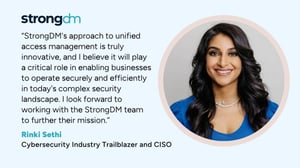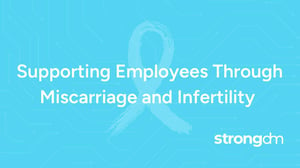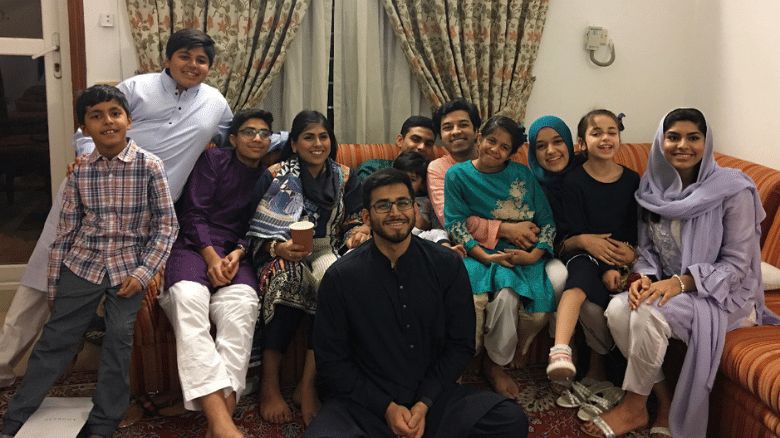
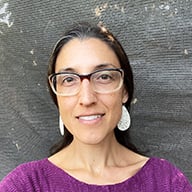
Written by
Maile McCarthyLast updated on:
August 24, 2022Reading time:
Contents
Built for Security. Loved by Devs.
- Free Trial — No Credit Card Needed
- Full Access to All Features
- Trusted by the Fortune 100, early startups, and everyone in between
Customer Success Manager Abdul Siddiqui has a superpower many travelers dream of: the ability to pass as a local in a country where you don’t speak the language. His secret? Don’t say a word. Today he shares the story of a trip to Pakistan in which silence was the perfect disguise … until it wasn’t.
Let’s start with the basics. Where were you going? Why? What was the plan?
My family was going to Pakistan for my cousin’s wedding, and I wasn't planning on going with them. I was in school at the time, doing a project class and co-op, and it ended early. I didn't have to show up in person for another month, and then the semester was over. I had already submitted my final project. I was basically done. So my family asked—are you going to stay at your campus? I couldn’t really go home.
And I was like, why can’t I come with you guys?
They said no. They had to visit our family and do errands and prep for the wedding, which involves dealing with locals. No one would have time to explain to me where to go, and they were afraid I would throw them off by sticking out. Basically, they didn’t want to “babysit” me (I was a little bit younger at the time. I think I was a freshman).
But I convinced them to let me come. I had nothing better to do. I told them, “I'll find a way to blend. I'll find a way to not stick out. I'll follow your guys's lead, and I just won't talk to people too much.”
And so, I took that quite literally. I didn't talk to anybody at all unless I was at home. It was difficult, but I tried to not talk to anybody in public while I was there. Even at other families’ houses and things like that.
So you were able to understand, you just were unable to speak?
Yeah, I can understand the language fully, but I couldn't speak it at the time. I could say words, but I couldn't form a sentence that was grammatically correct. So it was easy for me to pretend I was from there because I could actually understand 100% what was being said to me. But I chose not to ever respond to anybody in English, or in broken Urdu, or even single words. I would only respond in signals and head movements, or the person I was with would speak on my behalf.
I got this idea to pretend to be mute. I was definitely immature at the time. I was a lot younger, and I want to preface this by saying I don't want to make light of anybody that actually struggles with speaking or hearing. But I convinced my brother, who was like 12 years old at the time, to go along with it. And using that story, he and I were able to go everywhere and do pretty much anything.
What type of things were you doing? Picking up supplies for the wedding, what else?
My grandfather lives with us here in Los Angeles, but he has a house in Pakistan so hosting all the family that came to the wedding kind of fell on him. We had to prepare his house for the wedding events and festivities and family and things like that. Shopping for all the decorations, getting food for multiple parties. Pakistani weddings can last for like a week so we had a lot to do.
Was there ever a moment where it just turned ridiculous? Like a scene from [insert sitcom name here]?
Yeah. One of the wedding events was in a hotel. And as the event was wrapping up, and I was escorting some of the guests to their cars, I heard a voice calling my name. I turned around, and it was one of my friends from high school in California. I was like, “Dude, what are you doing here? How did you get here?” Turns out his cousin had just gotten married across the street.
I hadn't seen this friend in maybe two years, and we were just catching up. We had a full on conversation. It was the first time that some of my family members heard my voice. I definitely got looks from my cousins. And afterward, I didn’t acknowledge the fact that I spoke. It was just silence, followed by this random conversation with another American friend, and then just continued silence. It was definitely awkward, but it was never addressed.
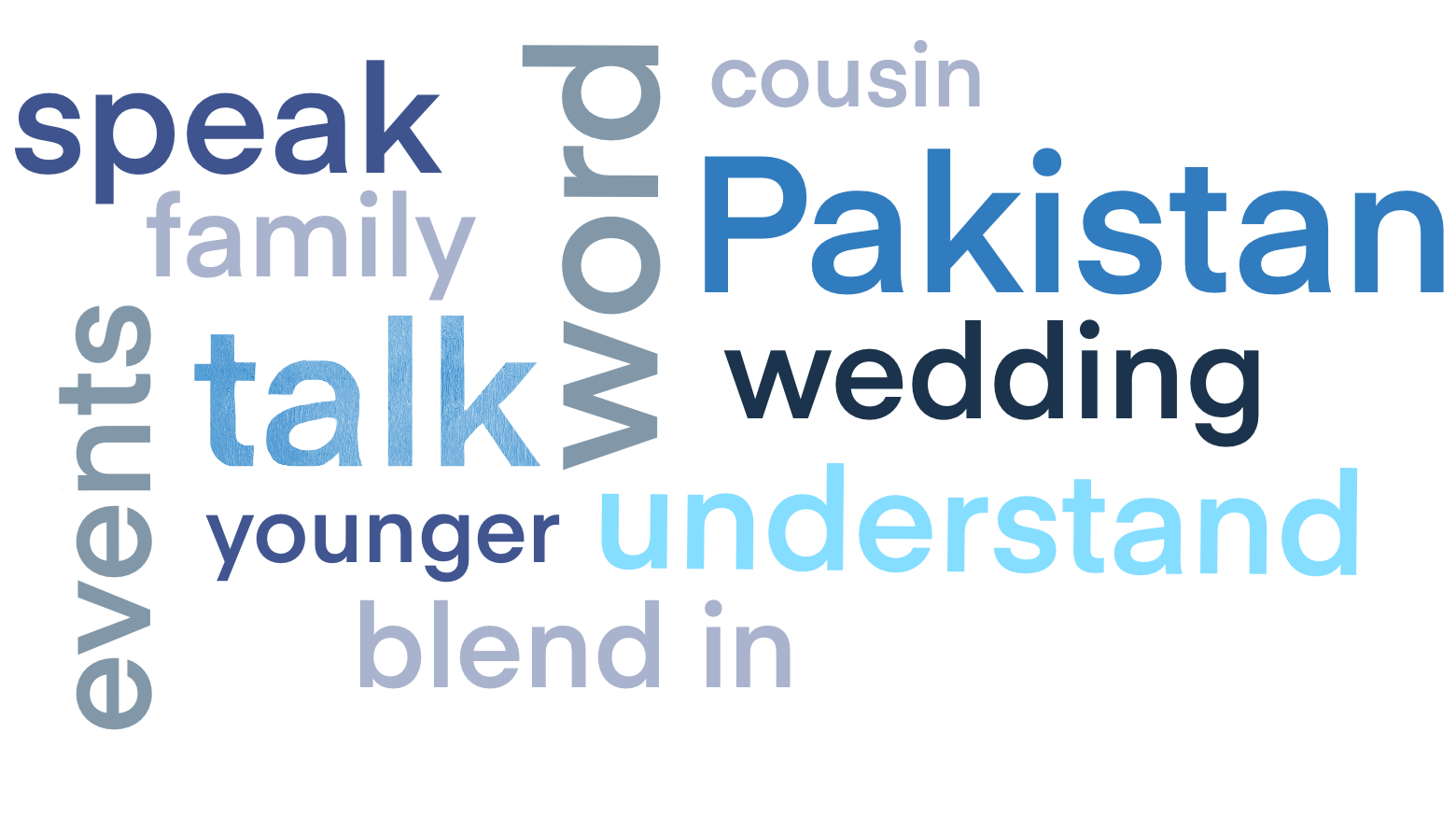
Now for the same seven questions we ask everybody.
What is your favorite word?
I really like the word expeditiously. I don't use it that much, but it sounds funny.
Your favorite sound?
Anything splashing into water.
Favorite superpower?
Invisibility.
A favorite emoji.
🥴
Save or spend?
I like to save first and then spend—delayed gratification.
Who's your hero?
My parents. I look up to them a lot. I admire them for the challenges they went through in their lives.
And what's your personal slogan?
“It's not that deep.” So like, don’t take everything so seriously. Obviously, there are some things you should take seriously, but that's my slogan. “It's not that deep.”
Alright, and you stand behind it. Thank you! Ladies and gentlemen, Abdul Siddiqui!
And if you’d like a chance to meet more great people like Abdul, check out our latest job openings.
Next Steps
StrongDM unifies access management across databases, servers, clusters, and more—for IT, security, and DevOps teams.
- Learn how StrongDM works
- Book a personalized demo
- Start your free StrongDM trial
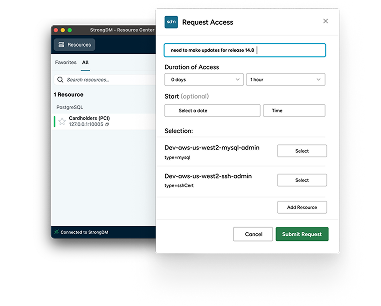
Categories:

About the Author
Maile McCarthy, Contributing Writer and Illustrator, has a passion for helping people bring their ideas to life through web and book illustration, writing, and animation. In recent years, her work has focused on researching the context and differentiation of technical products and relaying that understanding through appealing and vibrant language and images. She holds a B.A. in Philosophy from the University of California, Berkeley. To contact Maile, visit her on LinkedIn.
You May Also Like
